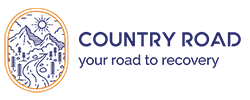Veterans are screened for substance use disorder and mental health issues upon discharge, but what happens when your problem develops months or years down the line? If your life feels out of control and you’re wondering if it’s time to get help for drug or alcohol addiction from the VA, this blog post could help you identify signs of addiction.
Addiction & Veterans
Addiction is a bigger problem for vets than we often realize, because substance use disorders have roots in the kind of trauma and mental health issues that are rampant among veterans due to the nature of military service. If you’re struggling, you are not alone and it’s not your fault.
Addiction is a chronic brain disease that rewires your brain and forces you to keep drinking and using even when you know it’s hurting you. If you can’t stop, it’s not from lack of willpower. It’s because drugs and alcohol have created a sickness in your mind that requires medical and professional help to heal.
Addiction Symptoms
Addiction (known in the medical field as “substance use disorder”) is even listed in the DSM V, a book that doctors use to diagnose mental illnesses — proof of the fact that it’s just as much of a disease as depression or cancer. The DSM V lists a series of statements that doctors can present to patients in the hopes of identifying substance use issues. Read these statements to yourself and consider whether they’re true or false in your own life:
- Your drug of choice is often taken in larger amounts or over a longer period than was intended.
- There is a persistent desire or unsuccessful efforts to cut down or control drug use.
- A great deal of time is spent in activities necessary to obtain drugs, use drugs, or recover from using drugs.
- Craving, or a strong desire or urge to use drugs.
- Recurrent drug use resulting in a failure to fulfill major role obligations at work, school, or home.
- Continued drug use despite having persistent or recurrent social or interpersonal problems caused or exacerbated by the effects of drugs.
- Important social, occupational, or recreational activities are given up or reduced because of drug use.
- Recurrent drug use in situations in which it is physically hazardous.
- Drug use is continued despite knowledge of having a persistent or recurrent physical or psychological problem that is likely to have been caused or exacerbated by drugs.
- Tolerance, as defined by either of the following: a need for markedly increased amounts of drugs to achieve intoxication or desired effect, or a markedly diminished effect with continued use of the same amount of drugs.
- Withdrawal, as manifested by either of the following: the characteristic withdrawal syndrome for drugs, or another drug (or a closely related substance,) is taken to relieve or avoid drug withdrawal symptoms.
If even one of these symptoms rings true, you or your loved one may be misusing substances. The severity of that use is characterized by the number of symptoms present: Mild (2-3 symptoms), Moderate (4-5 symptoms), and Severe (6 or more). A true diagnosis can only come from a medical professional, but reviewing this screener may help give you some clarity.
Addiction Treatment for Veterans
Professional help for substance use disorder can help give you true freedom from your addiction — and from the underlying trauma or mental health issues that are fueling it. At Country Road Recovery Center, we’re dedicated to helping vets get on the road to recovery. In fact, our Admissions Director Drew is a veteran himself and an alum of Country Road. Give us a call or send a chat to be connected with Drew or another member of our team. They’ll listen to your story and help you decide how to take the next steps to change your life.


